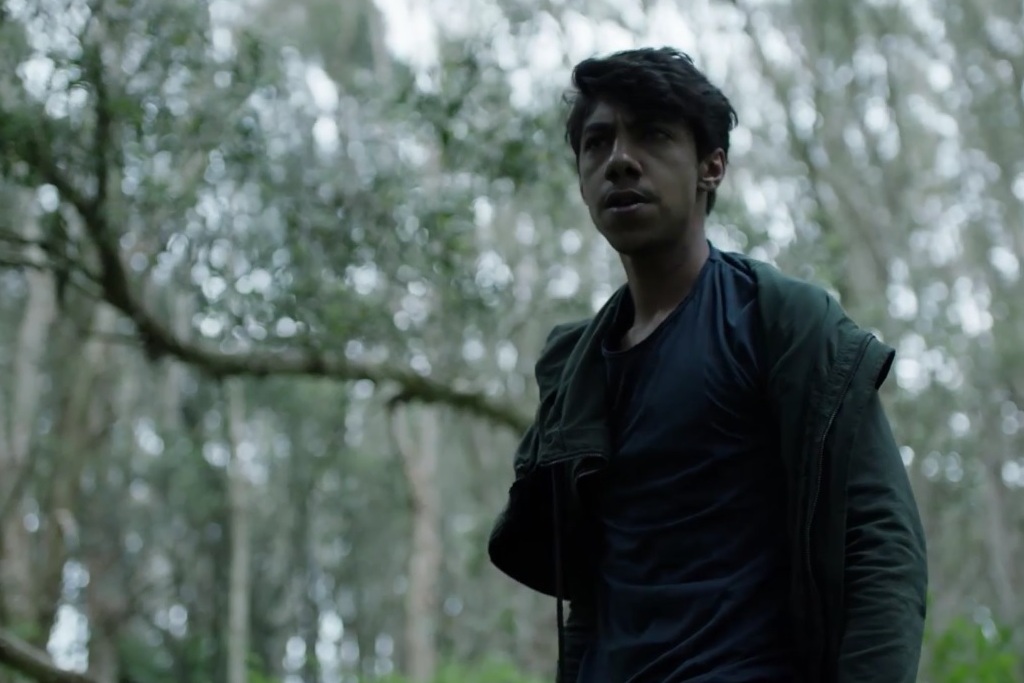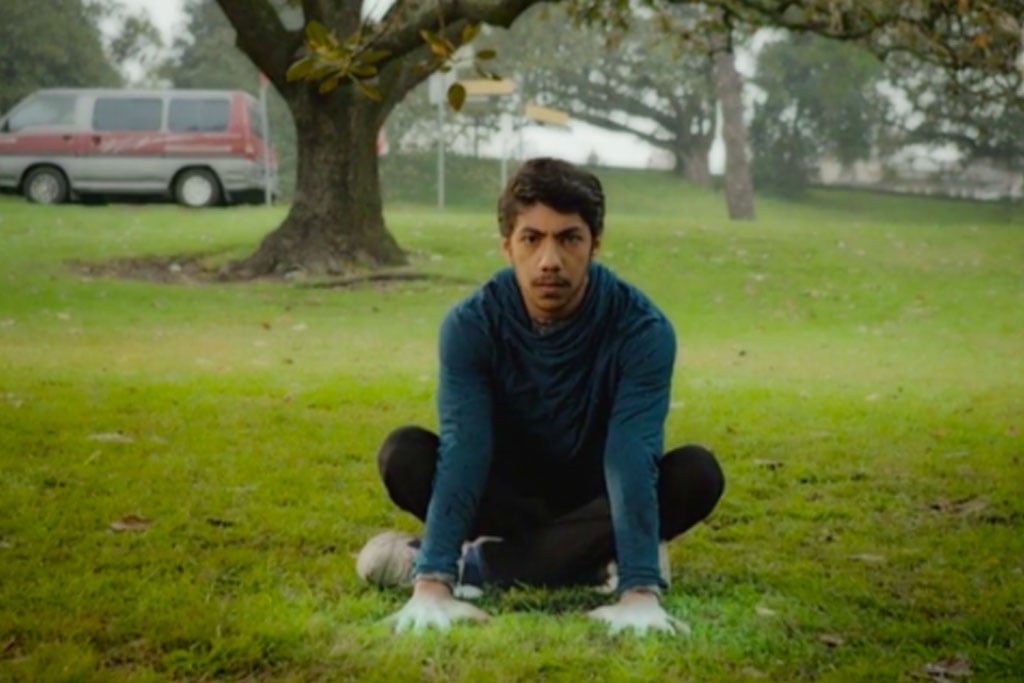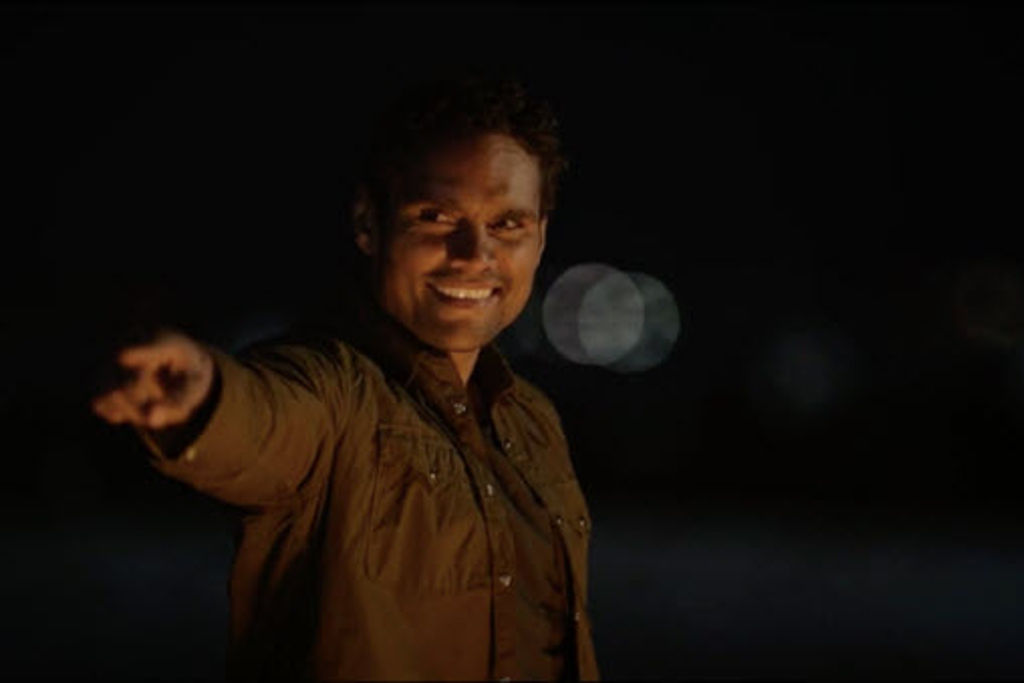‘Cleverman’ Is Sprawling In The Right Direction In Its Second Season
The dystopian politics of the show are about as subtle as a Trump tweet (in the best way possible).
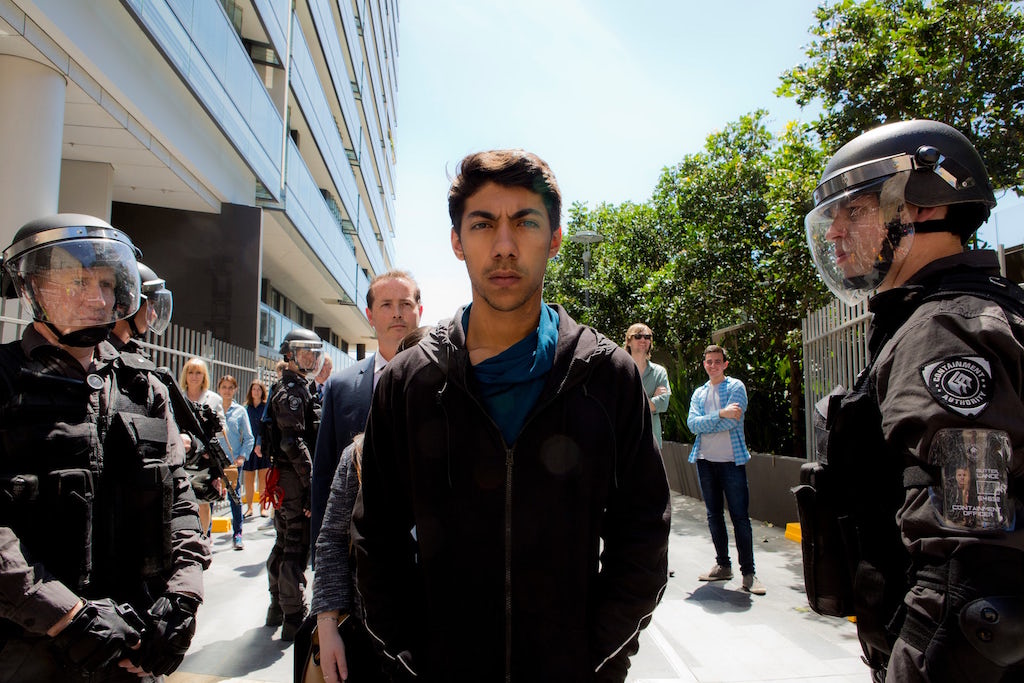
Spoilers for the season two premiere of Cleverman!
–
Cleverman starts its second season already saddled with a lot of story.
The season one finale ended with the Zone residents standing defiant in the face of the CA. But instead of diving into the battle (parts of which were actually shot last year), the season two premiere skips past it. In the aftermath Koen is dead and the rest of the Zone community is rounded up into trucks in the night.
It’s a deft way of drawing out the cliffhanger. We know Koen isn’t really dead, of course, as we’ve seen him recover from a bullet to the head and neck already, but we don’t know what happened with the stand-off. Waiting to see how Slade and McIntyre will be foiled by Koen’s powers builds its own tension.
Not only that, but Koen’s lack of memory of the battle allows its consequences to be drawn out for maximum impact, including the death of Blair (which is no great loss to the show, with respect to Ryan Corr, who did his best with a nothing character whose best line was an accidental pun about the remains of his dead girlfriend).
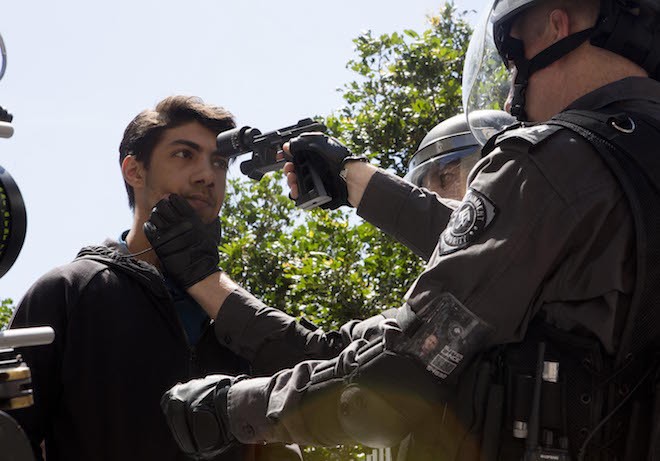
Cleverman has never been reluctant to kill off characters without warning, and mean it — from a literal child in the first episode, to Ash, Maliyan and Minister Matthews. Jarli dispatches over a dozen Containment Authority guards with lethal swiftness in the ambush, but a season one standout is a totally unexpected loss in the same scene — Tysan Towney’s name is missing from the opening credits. It seems safe to presume that unlike Koen’s, Djukara’s sudden, shocking death is the real deal. So too is the vicious beating of cheeky little Mungo at the hands of two humans — one of the hardest scenes to watch since the point-blank shooting of the women rejected by Araluen’s madam.
It’s a smart storytelling choice, in a TV era where audiences have learned to be skeptical of a character’s death even after it’s been well and truly confirmed. It means something to respect the permanence of death as a consequence of injustice and violence, particularly in a show with an apparently immortal protagonist.
And if it wasn’t clear enough from the moment last season where he killed Maliyan, Waruu has done a full face-heel turn. He’s a collaborator, a traitor to the people he keeps insisting he wants to protect. He’s either so completely blinded by his own bitterness and rage that he can’t see how cartoonishly evil Jarrod Slade is, or is simply unbothered by it.
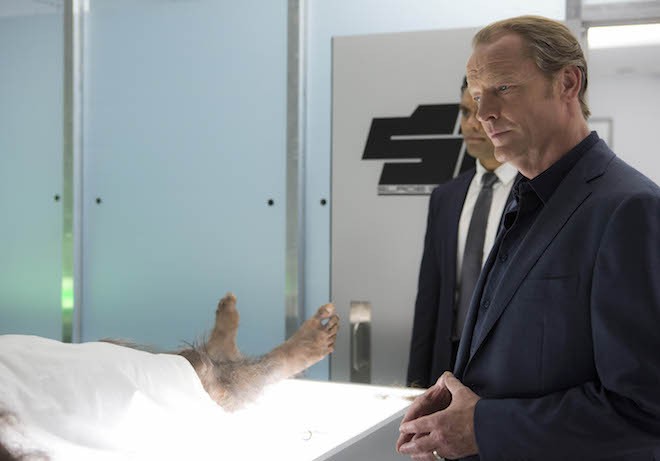
Waruu still demands respect instead of working to earn it. He still tries to speak on the Hairies’ behalf instead of fighting alongside them. But his characterisation is already wobbling under the weight of his plotline. He calmly accepts and moves into a luxurious house and cushy role at the CA while, at most, idly wondering where his wife and daughter might be and doing absolutely nothing to find or help them.
In season one, Waruu was conflicted and flawed but for the most part essentially moral when it came to the Hairies’ plight. It was strongly established that his sense of kinship and empathy with the Hairypeople and his desire for them to live on their own terms amongst humans came from his own experience as an Indigenous man. This jarred often with his behaviour towards Koen – from the childhood cruelty to the incredible violence he visits on his half-brother.
Neither of the West brothers are angels, but Waruu’s slide into supposedly well-intentioned complicity is shocking. He’s now involved in an assimilation scheme that combines full-on eugenics and deeply unethical medical experimentation on a minority for pharmaceutical profit; he’s well and truly on the side of the villains now. Rob Collins is clearly going to have some heavy lifting to do to maintain the nuance of his character.
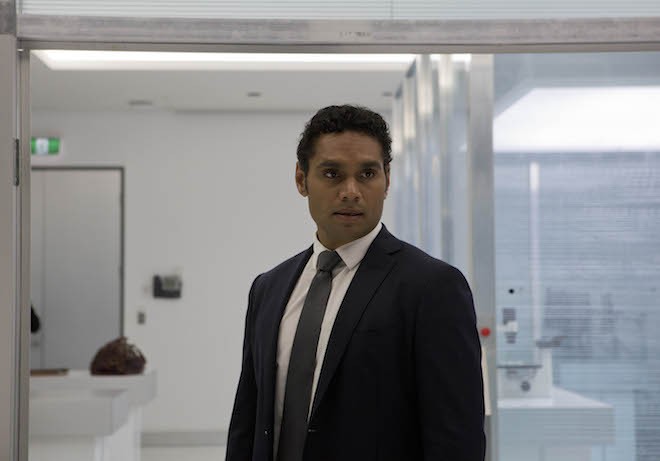
Ryan Griffen and his team have their work cut out for them when it comes to handling all those storylines. Charlotte’s pregnancy arc and Slade’s scientific research are converging nicely, a what’s left of our favourite Hairy family are still split up but neatly embedded in the other plots: Latani on the lam with Nerida (who, thank God, has loads more to do now than look concerned and long-suffering) and Alinta, Araluen back with the hidden Zoners, and Boondee a prisoner/lab rat in Slade and McIntyre’s secret science lair.
Of course, the most important development this season is the introduction of Jarli and his hidden community of Hairies still living on the land. The Hairypeople are a fascinating creation, and delving into the lives of the Hairies as they (presumably) were before Emergence Day is the most welcome new thread.
The beginning sequence where Jarli frees the Zoners from the trucks is beautifully done, from the lingering shot of Jarli’s gnarly serrated spear to the editing that highlights how lethal he is. Clarence Ryan is hugely charismatic and makes a compelling figure in his glorious full fuzz, red streak and burning blue eyes; his clandestine affinity for modern tech is interesting, and his status as a human/urban-Hairy-sympathising odd one out in his family sets up a neat little parallel with Koen.
More crucially, we’re primed to learn more about the history of the Hairies, and why they emerged from their hidden world at all. We finally get to see the culture that’s truly at risk under Waruu’s assimilation plan. It’s a new thread to manage, but it’s a sprawl in the right direction.
As with the first season, the show’s strength is the very real anger and resonance of its racial and social tensions. “Different rules apply to men like us, Waruu. We have to make difficult choices. There will be sacrifices,” Slade says archly.
“What have you sacrificed?” Waruu replies with a contained snarl.
The dystopian politics of the show are, as before, about as subtle as a Trump tweet.
When ice queen DHS head Marian Frith (Rachael Blake, inscrutable) archly declares from the side of a building that “We get to say who lives here, and who doesn’t”, it echoes the Howard-era line in the sand that still dictates the conversation around immigration and refugee policy. And it has a nasty double meaning: does she mean who lives here, or who lives here?
The futuristic aspects of the show are also being highlighted more: doors lock with a digital chirp, hologram screens are more prominent, cars have barcode number plates, and the unnamed city setting is patchworked together out of Sydney’s most soulless, soaring modern architecture. It’s embracing the nakedly Orwellian. A poster for the Department of Human Safety manages to nod to the DHS (Homeland Security) bogeyman common in contemporary American stories of paranoia, the laughably ominous crocodile logo of Border Force, and a shiiiitload of Nazi symbolism.
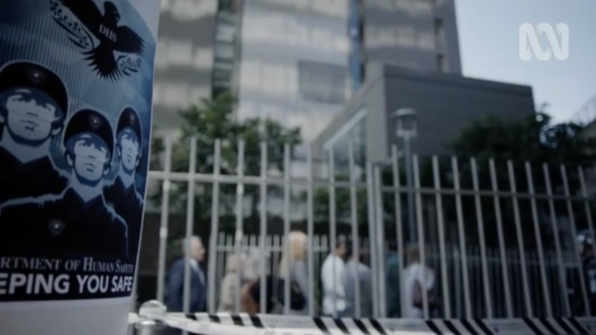
So the dystopian politics of the show are, as before, about as subtle as a Trump tweet. But this is still a superhero show, and we live in unsubtle times. With so much cartoon villainy coming from the people wielding power in the real world, our fictional bad guys have to step it up a notch too.
–
Cleverman is on ABC1 at 9.30pm Thursday nights. You can catch up on iView now.
–
Caitlin Welsh is a freelance writer who tweets from @caitlin_welsh.
–
The cast and creators of Cleverman are coming along to our inaugural Video Junkee festival in July, a new annual event for lovers and creators of online video. Video Junkee is on July 28 & 29 at Carriageworks in Sydney, featuring keynotes, masterclasses, screenings, interviews and more. Tickets are on sale now.
